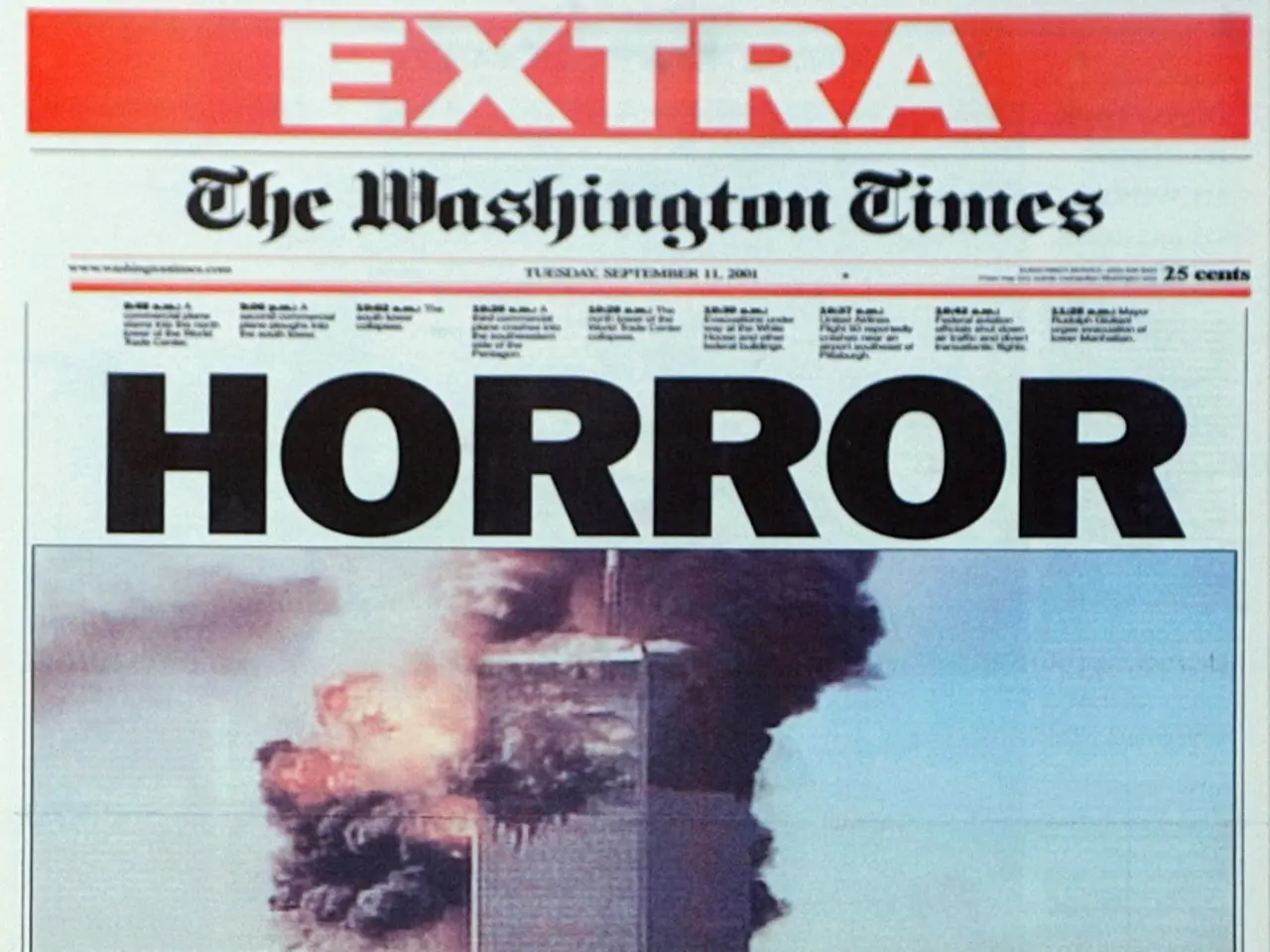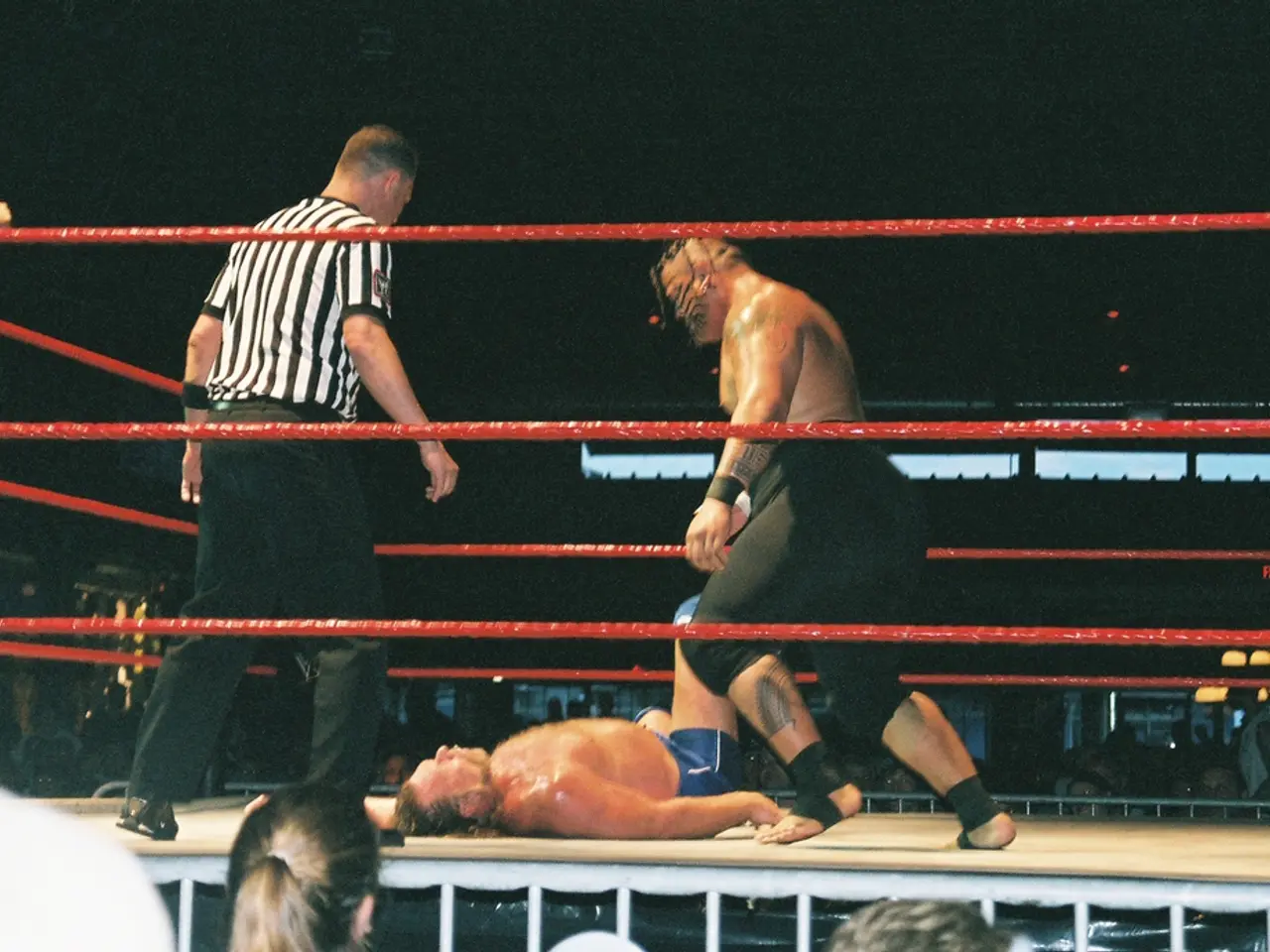Russian Furor Over German Treatment of Russian Journalists Leads to Summons and Threats
Russia summons German Ambassador to Moscow, issues warnings of potential retaliation
In an escalation of tensions, Moscow has summoned German Ambassador Alexander Graf Lambsdorff, issuing ominous warnings of "retaliatory measures" in response to perceived harassment and persecution of Russian journalists in Germany. The recent catalyst for this diplomatic standoff was the incident involving Sergei Feoktistov, head of Russia’s state media in Berlin, who asserted that German authorities confiscated his family's passports upon being ordered to leave the country. Russian authorities argue that this passport seizure was a deliberate attempt to prevent his family from seeking shelter [2][5].
This move is the latest chapter in the deteriorating relationship between Moscow and Berlin, following Russia's invasion of Ukraine in February 2022. Germany has staunchly supported Ukraine with military and financial aid, which has heightened tensions. Moscow has levied accusations of discrimination against Russian journalists and restrictions on Kremlin-linked media presence abroad. The European Union banned Russia’s RT network in 2022 due to its alleged role in spreading disinformation about the war, with Russia retaliating by blacklisting numerous Western media outlets and blocking foreign journalists [2][5].
The Russian Foreign Ministry called the ambassador to express displeasure over the treatment of Russian journalists and their families. They also hinted at planned retaliatory actions in response to what Moscow perceives as Germany's arbitrary and unjust actions against Russian media personnel. Maria Zakharova, Foreign Ministry spokeswoman, decried Germany for failing to heed Moscow's calls to halt these practices and for disregarding press freedom and the plurality of opinions [3].
With regards to potential retaliatory measures, Moscow cautioned German journalists in Russia to brace for countermeasures. While specific reprisals have not been disclosed publicly, past Russian responses to Western media constraints have included blocking media outlets and expelling journalists [2][3]. Consequently, Russia's response is likely to involve diplomatic and media-related sanctions against German journalists and media organizations operating in Russia.
In essence, Moscow summoned the German ambassador predominantly to voice concerns over the treatment of Russian journalists in Germany, specifically the passport confiscation incident, and to issue warnings of potential retaliatory actions in the ongoing worsening of Russia-Germany relations amid the Ukraine conflict [1][2][3][5].
- The tensions between Russia and Germany have extended into the realm of politics, with Moscow expressing discontent over the treatment of Russian journalists in Germany, particularly the confiscation of passports, which they view as an attempt to prevent families from seeking shelter, and threatening retaliatory measures.
- The Russian Foreign Ministry has also criticized Germany for its perceived discriminatory practices against Russian journalists, alleging disregard for press freedom and plurality of opinions, and warned German journalists in Russia to anticipate countermeasures, hinting at possible retaliation similar to past incidents involving media outlets and the expulsion of journalists.








